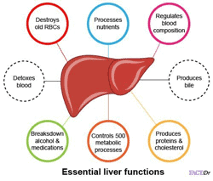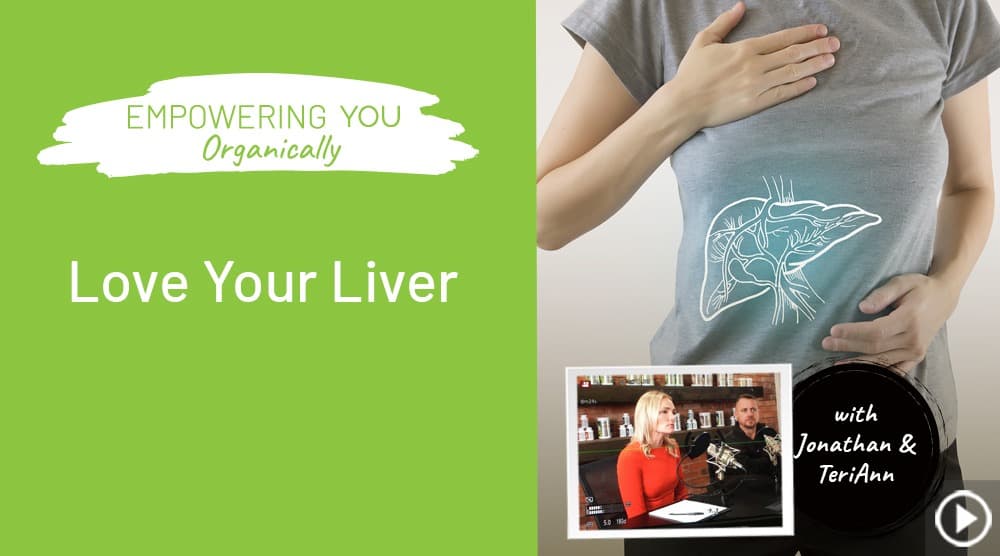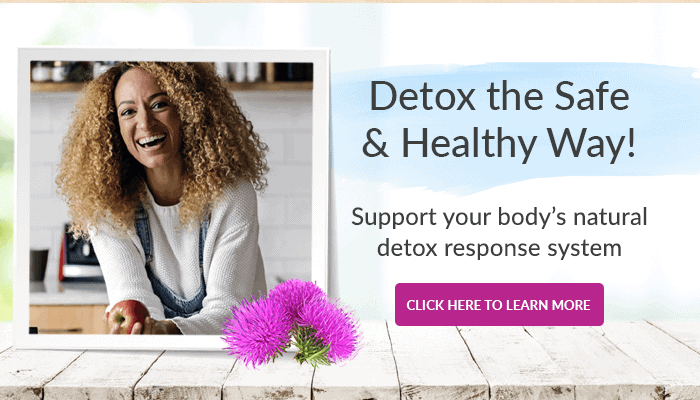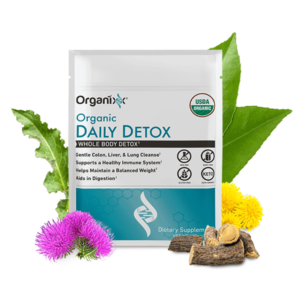Empowering You Organically – Season 12 – Episode 107
Title: Love Your Liver
Hosts: Jonathan Hunsaker, TeriAnn Trevenen
Description: Like a city’s infrastructure, the liver has hundreds of different functions and is a connected with every part of the body. Tune in to learn how to support your liver for vibrant health!
* * *
FEATURED PRODUCT
Stronger than a tea… yet gentle enough for daily use
Promotes a robust immune system that protects you year-round
Supports healthy liver function (your body’s #1 detoxifier)
Aids bile production for strong, predictable digestion
Supports healthy lungs that cleanse your body of airborne toxins
Boosts energy, promotes regular sleep patterns, and even improves mood
6 organic superfood ingredients
HOW TO USE
Mix one scoop daily in 8-10 oz of hot or cold water or your favorite beverage
“Like a city’s infrastructure, the liver has hundreds of different functions and is a connected with every part of the body. At every moment of the day, this vital organ is involved in manufacturing, processing, and supplying vast amounts of nutrients for the 60 to 100 trillion inhabitants (cells) of the body. Each cell is, in itself, a microscopic city of immense complexity that generates billions of biochemical reactions per second. To sustain the incredibly diverse activities of all the cells of the body without disruption, the liver must supply them with a constant and uninterrupted stream of nutrients, enzymes, and hormones. With its intricate labyrinth of veins, ducts, and specialized cells, the liver needs to be completely unobstructed in order to maintain a problem-free production line and frictionless distribution system throughout the body.” ~ Andreas Moritz ~ a Medical Intuitive and practitioner of Ayurveda, Iridology, Shiatsu and Vibrational Medicine. Author of The Amazing Liver & Gallbladder Flush, Timeless Secrets of Health and Rejuvenation, Lifting the Veil of Duality and It’s Time to Come Alive.

The liver is our largest cleansing organ in our body. It must deal with all digestive functions in the body and much more.
Your liver is your best friend; treat it with mindfulness and kindness by eating clean food of the highest quality to lessen the amount of work it has to perform to keep you alive and healthy. When you eat the SAD (Standard American Diet) full of fried foods, meat, sodas, endless cups of coffee, dairy, unhealthy, hydrogenated fats, highly- acidic foods, white flour, and sugar, you damage the liver, clog the bile ducts responsible for the digestion of fats, and create liver and gallbladder stones.
Remember, when the liver works overtime all the time, its ability to filter out toxins becomes compromised. The stones start forming, clogging out both organs and eventually suppressing the immunity of the entire body.
Cleansing the liver is highly recommended for anyone who is trying to balance their hormones. Detox is vital because our bodies are loaded with chemicals, excess estrogens, and other toxins.
There are two critical steps you can take to maximize your liver’s ability to remove toxins.
These are:
- Decreasing toxic load
- Supporting the liver through dietary and lifestyle improvements
-
Recommendations to reduce toxic load:
- Eat an organic whole foods diet
- Eat antibiotic and hormone-free meats, fish, and dairy
- Use a whole-house water filtration system
- Use a high-quality air purifier in the home or office, and open windows as often as possibl
- Avoid alcohol, caffeine, smoking, and illegal drugs
- Avoid plastics – particularly plastic wrap and plastic-lined cans
- Swap out chemical household cleaners, soaps, and antibacterial products for all-natural brands
- Use chemical-free beauty and skincare products – choose those without toxic preservatives and additives such as parabens and artificial fragrances
-
Support the liver through diet and lifestyle to promote optimal functioning:
- Decrease intake of refined carbohydrates to help heal fatty liver
- Eat liver-supportive foods such as beets, citrus, avocados, and cruciferous vegetables
- Consume high-quality protein such as eggs, fish, organ meats and gelatin found in bone broth – the amino acids found in these foods support phase 2 of liver detoxification
- Support the emptying of the GI tract by eating plenty of fiber
- Break a sweat – this should be done regularly, through exercise, saunas, and steam rooms
- Manage stress to decrease cortisol overproduction
- Use herbs that support the liver – these include chlorophyll, cilantro, turmeric, dandelion root, burdock root, milk thistle, and artichoke extract
- Take supplements that support liver function, including the B complex of vitamins, vitamins A, C, D, and E, along with N-acetyl cysteine, which is a precursor to glutathione (the master antioxidant).
-
Support glutathione production
Glutathione is one of the most potent antioxidants in the body. It protects the liver from damage and it plays a crucial role in preventing a host of conditions linked to inflammation.
Ways to increase glutathione production include:
- Gentle exercises, like tai chi or restorative yoga
- Taking stress down a few notches with calming practices like meditation, mindfulness exercises, or grounding
- Include sulfur-rich foods in the diet that support and stimulate glutathione production, such as garlic, onions, and cruciferous vegetables
- Consume foods high in vitamin C and E, like oranges, berries, grapefruit, tomatoes, peppers, sunflower seeds, almonds, and avocado
- Include selenium-rich foods, like brazil nuts, sardines, beef, and liver
- Eat bitter-tasting dark leafy greens, like arugula, chicory, mustard greens, Swiss chard and collard greens
-
Get your sweat on
One of the best ways to encourage detoxification is through the skin. Sweating is a way to help purge heavy metals and larger toxin molecules from the body.
- Sauna – infrared saunas, in particular, can help break a sweat in a healthy way
- Steam Room
- Exercise
-
Address overexposure to environmental toxins
The poly-chlorinated and brominated chemicals, like PCBs and flame-retardants, are harmful to the liver. These are present in drinking water and many foods. Other environmental toxins such as BPA and other plastic softeners like phthalates can artificially increase estrogen levels.
- Avoid plastics including water bottles and food packaging, BPA-coated receipts, and plastic flip flops
- Consider installing a high-quality home water filtration system, or start by purchasing a drinking water filter
- Use only natural cleaning products and personal care products
- Eat organic fruits and vegetables, grass-fed meats, and sustainably caught wild fish





